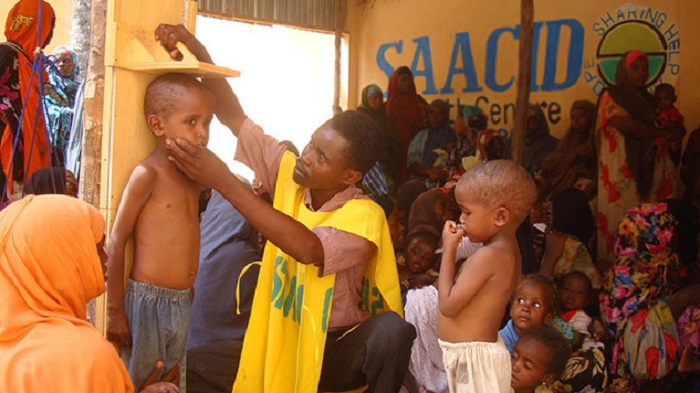Kilifi, KENYA: At least 2 out of 5 children in Kilifi are stunted, this is according to a 2016 Standardized Monitoring and Assessment of Relief and Transitions (SMART) survey done by Kilifi County government nutrition department.
The survey shows that the levels have dropped from previously 39 percent to 35.9 percent.
Kilifi County Nutrition Director Ronald Mbunya says the number is still higher than the national level of 26 percent.
A study by Child Development for Marginalized Children (CDMC) shows that at least 270 million children in low and middle income countries globally do not meet their full potential due to stunted growth and malnutrition.
According to Professor Amina Abubakar, lead researcher of the program, stunting and malnutrition affects the thinking capacity of children due to low Intelligence Quotient (IQ).
This then affects the children’s thinking capacity which has a long term effect on their education hence increasing poverty levels in the country.
Speaking in Kawangware, Nairobi, Professor Amina told Baraka FM that the situation needs urgent intervention by various stakeholders to enhance proper children growth and development for a potential future.
“We are in a bad situation because the number of children missing out on their potential is increasing rapidly due to various factors such as poverty where food is inadequate and not recommended for children below five years,” the professor said.
She said the program is also aimed at coming up with intervention strategies which would help parents bring up their children on the best way possible.
“We decided to start our program with Kawangware in 2017 because it is an urban informal settlement where children are passing through difficult situations such as inadequate food, lack of fresh water and poverty, but the number of people here is increasing and we feel we have to come up with a strategy to counter it,” she said.
However, the process of getting the mothers into the program has not been easy.
According to Joyce Wesonga, DARAJA Civic Initiative Form (which has partnered with CDMC) program’s manager, poverty, awareness and accessibility has been a stumbling block to getting the mothers enrolled in the program.
“Many mothers have been hard to open up on their family situations because they believe it’s so personal to share with other people,” Joyce said.
“This has made it difficult to get them because they don’t believe we have a good motive with them. Accessibility has also been a problem as the areas are slums with no roads. Another thing is that they prioritize their daily activities than our initiative as they need to get something for their families and this makes it difficult to get them,” she added.













